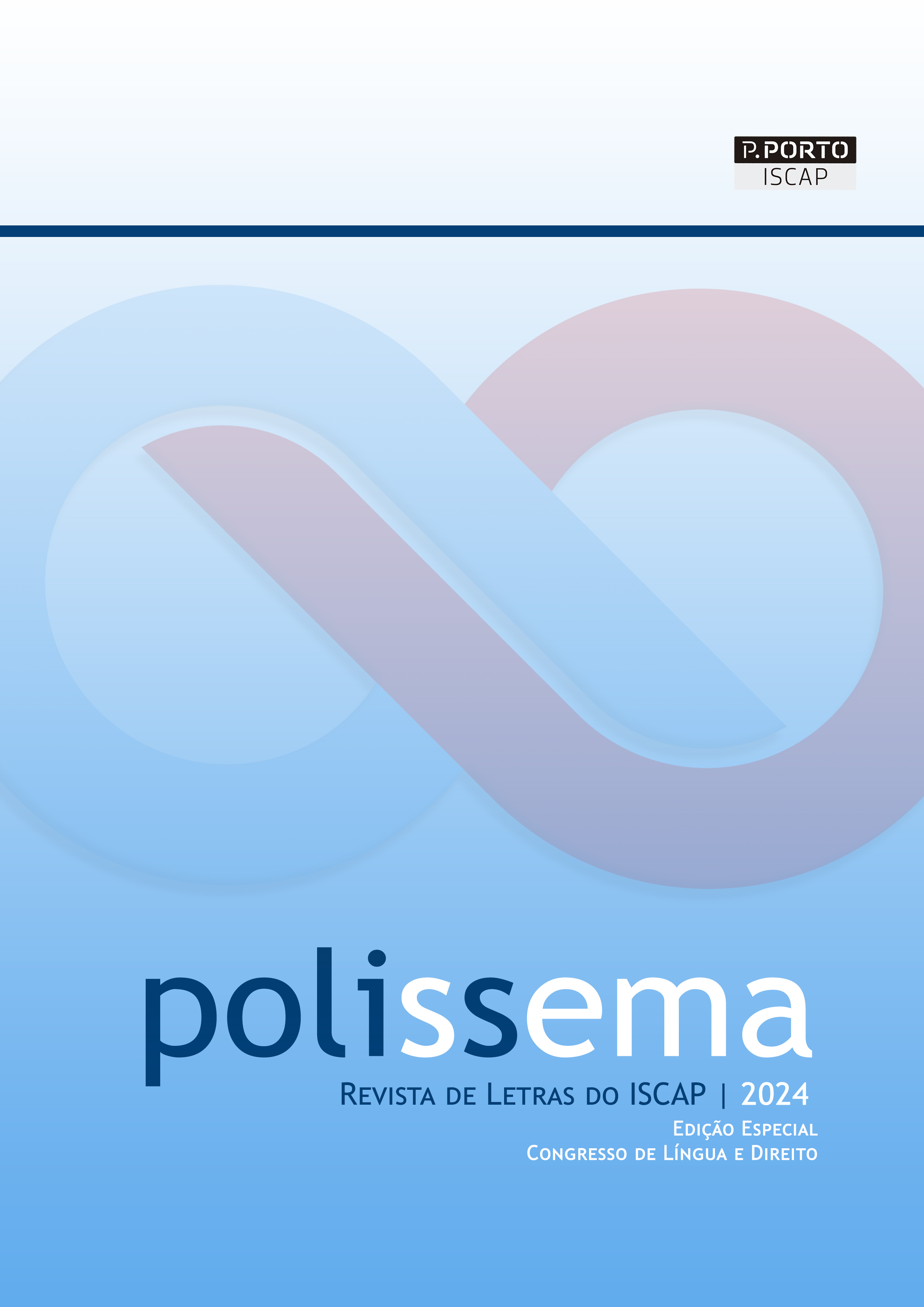LANGUAGE BARRIERS IN PORTUGUESE COURTS. CLUES FOR A DIAGNOSIS
DOI:
https://doi.org/10.34630/polissema.vi.5643Keywords:
Language barriers; court practice; interpreter; translatorAbstract
It is commonly acknowledged that a fair trial requires that those who do not speak or understand the language of the court should be assisted by an interpreter and have access to a translation of key case documents into a language that they understand. The right to be assisted by an interpreter in criminal proceedings has a long tradition in international human rights’ law and was further strengthened in the European Union with Directive 2010/64/EU of 20.10.2010. The right is also explicitly recognised by Portuguese law, in the Codes of Criminal and Civil Procedure and in the Asylum and Immigration Acts. However, similarly to what has been reported for other countries, the provision of language assistance in Portuguese courts leaves much to be desired, with obstacles ranging from scarcity of qualified interpreters to the lack of sensitivity on the part of judicial actors to the specificities of working with interpreters and to the impact that language barriers can have on access to justice by those who do not understand Portuguese. This paper gives an assessment of the state of play, based on an analysis of the relevant international and domestic legal frameworks, of judgments where Portuguese courts ruled on the (ir)relevance of the lack or insufficient assistance by interpreter and of the outcomes of focus groups and individual interviews conducted with stakeholders on the challenges of working in multilingual settings and the performance of Portuguese courts.
References
Angelelli, C. (2015). Justice for all? Issues faced by linguistic minorities and border patrol agents during interpreted arraignment interviews. MonTI, 7, 181-205.
Bacik, I. (2007). Breaking the language barrier: Access to justice in the new Ireland. Judicial Studies Institute Journal, 2, 109-123.
Barak, M. P. (2021). Can you hear me now? Attorney perceptions of interpretation, technology, and power in Immigration Court. Journal on Migration and Human Security, 9(4), 207-223.
Castles, S., de Haas, H. & Miller, M. J. (2014). The Age of Migration: International Population Movements in the Modern World, 5.ª ed. Palgrave Macmillan.
Davis, L. W. & Isaacson, S. A. (2017). Ensuring equal access to justice for limited English proficiency individuals. Judges’ Journal, 56(3), 21-26.
Del Pozo Triviño, M. & Blasco Mayor, M. J. (2015). Legal interpreting in Spain at a turning point. MonTI, 7, 47-71.
Easley, D. (2019). Can you hear me now: Due process and language barriers to justice. Journal of Global Justice and Public Policy, 5, 137-162.
Hertog, E., & van Gucht, J. (Eds.) (2008). Status Quaestionis: Questionnaire on the Provision of Legal Interpreting and Translation in the EU. Intersentia.
Jerónimo, P. (2014). A Diretiva 2010/64/UE e a garantia de uma assistência linguística de qualidade em processo penal: implicações para a ordem jurídica portuguesa. In M. Monte et al. (eds.), Estudos em Comemoração dos 20 Anos da Escola de Direito da Universidade do Minho (pp. 527-564). Coimbra Editora.
Jerónimo, P. (2017). Intolerância, integração e acomodação jurídica das minorias islâmicas na Europa: Os desafios postos à prática judicial. In P.P. Adragão, A.C. Leão & T.A. Ramalho (eds.), Atas do II Colóquio Luso-Italiano sobre Liberdade Religiosa (pp. 59-100). Faculdade de Direito da Universidade do Porto.
Jerónimo, P. (2022). A jurisprudência multicultural do Tribunal Constitucional português: Mapeamento e análise crítica. JusGov Research Paper Series, 15, 1-66.
McEvoy, G. (2023). Language proficiency and the right to an interpreter when accessing a fair trial. Translation & Interpreting, 15(2), 142-156.
Molina, L. M. (2008). Language access to Louisiana courts: A failure to provide fundamental access to justice. Loyola Journal of Public Interest Law, 10(1), 1-26.
Mourinha, M., & Pinto, M. P. (2023). Uma antologia de histórias de tradutores… Porquê e para quê? In M. Mourinho & M. P. Pinto (eds.), O Irresistível Charme da Tradução… Uma Antologia de Histórias de Tradutores (pp. 9-17). Documenta.
Phelan, M. (2011). Legal interpreters in the news in Ireland. Translation & Interpreting, 3(1), 76-105.
Sagel-Grande, I. (2012). Alemães, ingleses, franceses e holandeses em prisões portuguesas e holandesas. Scientia Iuridica, LXI(330), 543-577.
Shepard, R. T. (2007). Access to justice for people who do not speak English. Indiana Law Review, 40(4), 643-658.
Downloads
Published
How to Cite
Issue
Section
License
Copyright (c) 2024 POLISSEMA – ISCAP Journal of Letters

This work is licensed under a Creative Commons Attribution-NonCommercial-NoDerivatives 4.0 International License.


